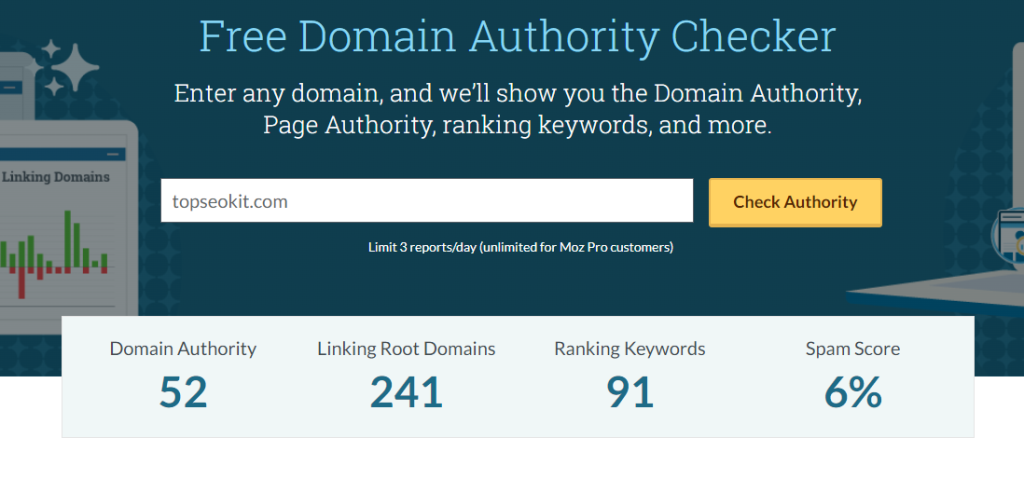
Maximize Your SEO with a Supercharged SEO Score
Looking to increase your website’s search engine rankings and need guidance on the first steps to take? One of the most important metrics to pay attention to is your SEO score. This handy little number gives you insight into the overall health of your search engine optimization.
Table of Contents
- Introduction
- How SEO score is calculated
- Check your current SEO score
- Tips to improve a low SEO score
- Monitoring your progress
- Benefits of a high SEO score
- Conclusion
- FAQs
1. Introduction
An SEO score is a benchmark that measures how optimized a website is to rank highly in search engines like Google. It analyzes all the critical on-page and off-page factors influencing rankings and rolls them into one easy-to-understand score.
Why is SEO score so crucial for your website? Well, the higher your SEO score, the better positioned you are to rank on the first page for your target keywords. A site with strong SEO signals to search engines that it provides users with a trusted, authoritative resource.
Think of SEO score as your website’s report card – it highlights areas of success and surfaces problems you still need to fix. Regularly checking and optimizing your SEO is essential for staying ahead of the competition. Take action before you’ve lost rankings.
2. How SEO Score is Calculated
So how exactly is your website’s SEO score determined? There are a few essential on-page and off-page factors that influence it.
On-Page Factors
These are elements within your actual website pages that search engines analyze:
Content
Unique, high-quality content optimized with keywords helps boost your SEO. Think blog posts, product descriptions, and FAQs.
Site Speed
Fast load times enhance user experience. Improve page speed to increase your SEO.
Mobile Optimization
With mobile usage growing, make sure your site is mobile-friendly. Check elements like responsive design.
Technical SEO
No broken links, clean code, and proper website architecture help your SEO.
Off-Page Factors
Elements outside your website also impact your SEO score:
Backlinks

Getting backlinks from reputable sites elevates your authority and SEO.
Domain Authority

An established domain with age and high-quality backlinks improve your score.
Regularly optimizing these key elements will help maximize your website’s SEO.
3. Check Your Current SEO Score
Ready to get a detailed analysis of your website’s current SEO health? There are several excellent free tools you can use:
Moz Bar
This browser plugin gives you quick access to Moz’s reliable SEO metrics in your search results. See overall MozScore plus a link and page metrics.
SEMrush Site Audit
Run a SEMrush audit to uncover technical and on-page issues hurting your SEO. Identify gaps to focus your optimization efforts.
Ahrefs Site Audit
Ahrefs audits scan your site’s SEO and provide an overall score out of 100. Review the checklist summary for areas to improve.
Google Search Console
Google’s free platform shows how your pages are performing in search. Check crawl stats, indexing issues, and mobile usability.
Spend time fully exploring the metrics from these tools. Look for any significant issues dragging down your total SEO score. Then you can create a plan to boost it.
Tools to get your overall score
Use the data from the SEO tools to create a checklist for improving your score. Identify 3-5 priority areas and outline specific next steps. With a plan to boost your rankings, you can steadily climb search results.
4. Tips to Improve a Low SEO Score
If your website has a low SEO score, don’t panic. With some strategic optimizations, you can start climbing the rankings. Follow these tips to give your score a boost:
Focus on High-Quality Content
Great content is the foundation of solid SEO. Regularly publish in-depth, valuable articles and videos optimized with keywords. Engaging content keeps visitors on site longer, reducing bounce rate.
Optimize Pages with Target Keywords
Include your target keywords in strategic places like page titles, headers, image ALT text, and the opening paragraph. It helps search engines understand your content’s topic.
Build Backlinks from Authority Sites
Getting backlinks from high-authority sites signals to Google your page is worthwhile. Guest posts on industry blogs or earn editorial links by pitching reporters.
Improve Page Speed and Mobile Experience
Slow load times hurt your score. Use compression, caching, and image optimization to accelerate your site. Also, ensure your site is mobile-friendly and adopts a responsive design.
Update Site Architecture and URLs
An updated site structure with messy URLs can positively impact rankings. Create a simple IA and logical URL structure using keywords.
You can turn your low SEO score into an asset with a concerted effort across these areas. Consistency and high-quality execution are crucial to success. Monitor your progress with free SEO tools.
5. Monitoring Your SEO Score Improvements
As you optimize your website’s SEO, you must regularly check your progress. Here are some tips:
Check Your Score Frequently
Use free SEO tools like Moz and Ahrefs every 1-2 months to monitor changes in your overall score. More frequent checks let you quickly see the impact of optimizations.
Compare to Competitors
Look up your top-ranking competitors’ domain authority scores. It gives you an aspirational benchmark to aim for. Surpassing their scores means you can outrank them.
Set Specific SEO Score Goals
Establish specific goals for an excellent score, like improving 10 points per quarter. It might be reaching 60 for Moz’s PA or 80 for Ahrefs. Defining targets keeps you focused.
Identify New Problem Areas
Review your site audit category breakdowns to spot new low areas. For example, your backlinks may improve, but page speed needs work now. Continuously refine priorities.
With regular monitoring using free SEO tools, you can better understand your strategy’s effectiveness and reach your search rankings goals. Consistency is vital when optimizing your website over time.
6. Benefits of Improving Your Website’s SEO Score
Getting your website to an excellent SEO has many advantages:
Higher Search Engine Rankings
A higher score signals relevancy and authority to Google and other search engines. It can boost your rankings for valuable keywords, putting you on page 1.
Increased Organic Traffic
Ranking higher means more visibility in search results, earning more clicks and visitors to your site for free. More organic traffic builds awareness.
Greater Visibility and Authority
A good SEO reflects a robust online presence. It establishes you as an authority in your niche, lending credibility.
Higher Conversion Rates
Ranking well for keywords aligned with your products or services lets you put your site in front of motivated potential customers. It directly translates into more conversions.
You can reap all these benefits by monitoring your score and consistently optimizing your website. Attention to SEO – a high score can be a competitive advantage and drive business growth. Measure your progress to reach your goals.
7. Conclusion
So there you have it – optimizing your website’s SEO score takes work, but the payoff is worth it. Just think, soon you could be the top search result for “how to write SEO articles cleverly.” With greater visibility comes greater responsibility, so keep creating excellent content, building links, and monitoring your progress as you ascend to search engine stardom. Your new high score is waiting – now get out there and claim your SEO crown! Remember, with great SEO power comes excellent SEO responsibility.
8. FAQs
1.What is the SEO score?
SEO score is a metric that measures how well optimized a website or page is for search engines.
2.How can I check my SEO score?
You can check your site’s SEO score using online tools like Moz, SEMrush, or Neil Patel’s SEO analyzer.
3.Is 50 a good SEO score?
50 is an average SEO score. Good scores are typically above 60. The max score is 100.
4.What is the Google search SEO score? Write 2 lines answer of each question above
Google search doesn’t provide an SEO score. It ranks pages based on relevance, authority, and optimization. Higher rankings indicate better SEO.
Let’s dive in! Get started for free
